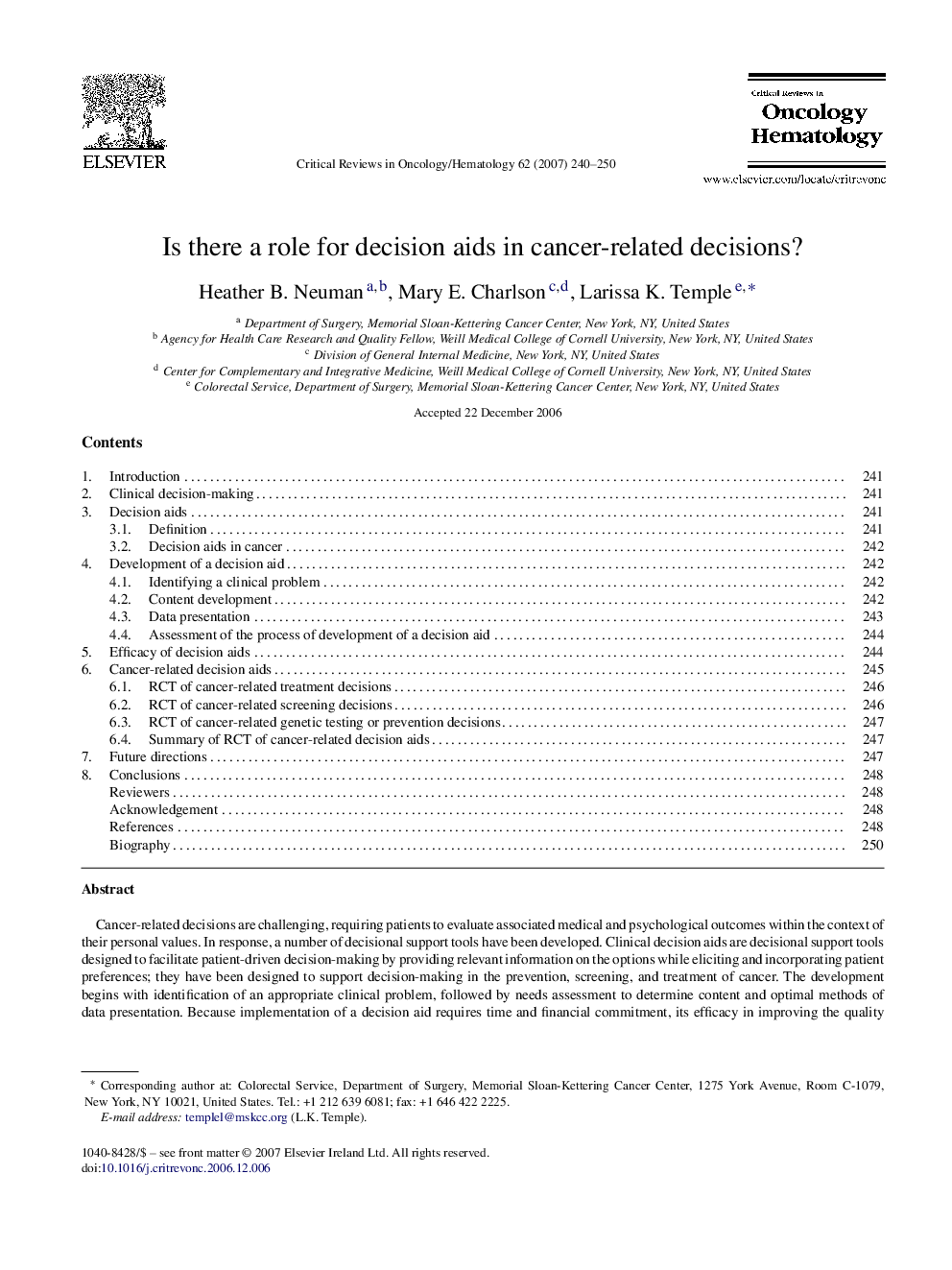| Article ID | Journal | Published Year | Pages | File Type |
|---|---|---|---|---|
| 3330412 | Critical Reviews in Oncology/Hematology | 2007 | 11 Pages |
Cancer-related decisions are challenging, requiring patients to evaluate associated medical and psychological outcomes within the context of their personal values. In response, a number of decisional support tools have been developed. Clinical decision aids are decisional support tools designed to facilitate patient-driven decision-making by providing relevant information on the options while eliciting and incorporating patient preferences; they have been designed to support decision-making in the prevention, screening, and treatment of cancer. The development begins with identification of an appropriate clinical problem, followed by needs assessment to determine content and optimal methods of data presentation. Because implementation of a decision aid requires time and financial commitment, its efficacy in improving the quality of patients’ decisions must be evaluated. In randomized controlled trials, cancer-related decision aids have been shown to increase patients’ knowledge regarding their disease, and may facilitate patients playing a more active role in decision-making. Some studies suggest less decisional conflict and improved satisfaction with decision-making as a result. Whether use of a decision aid impacts the actual decisions made by patients, however, is less evident.
